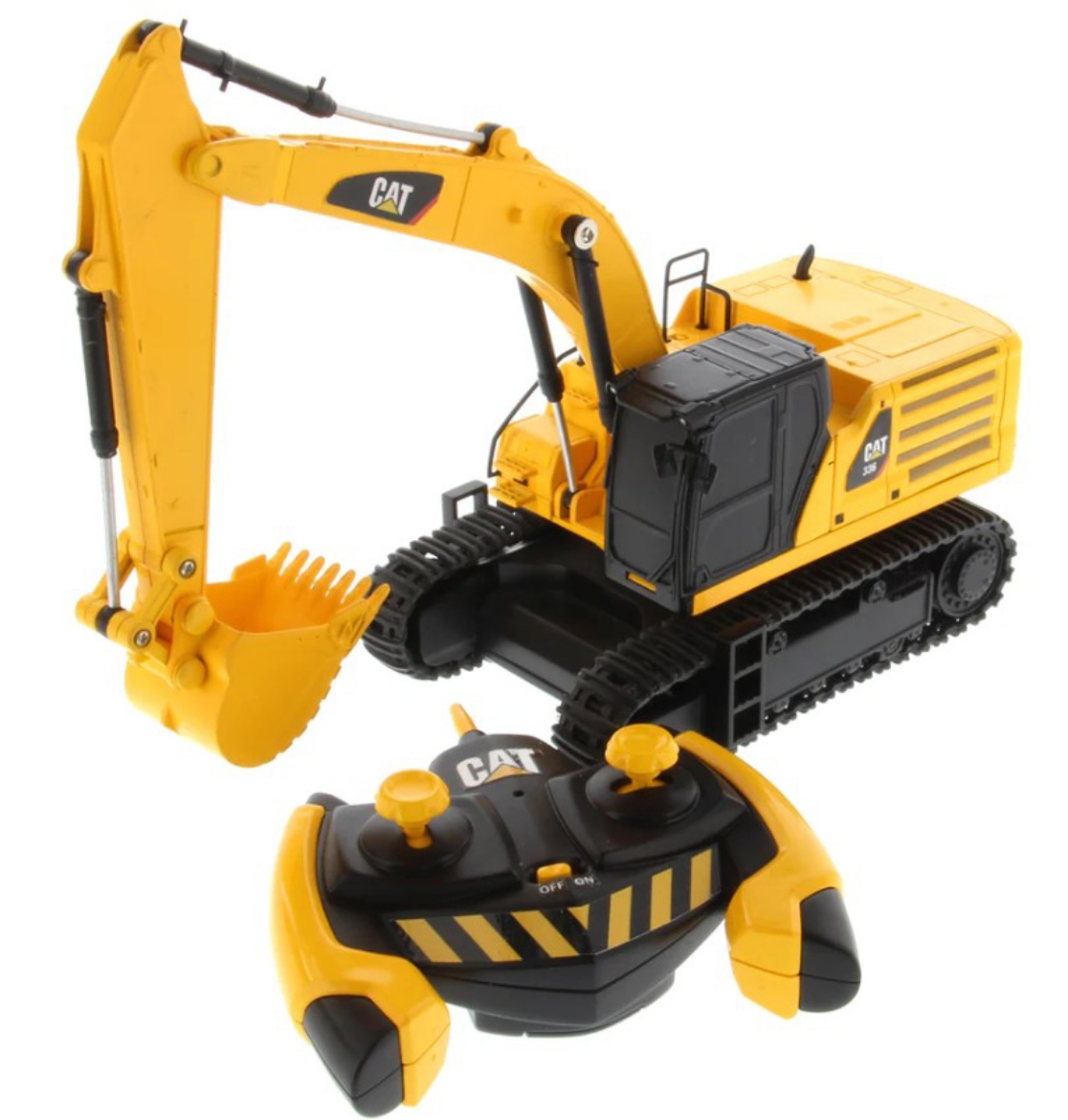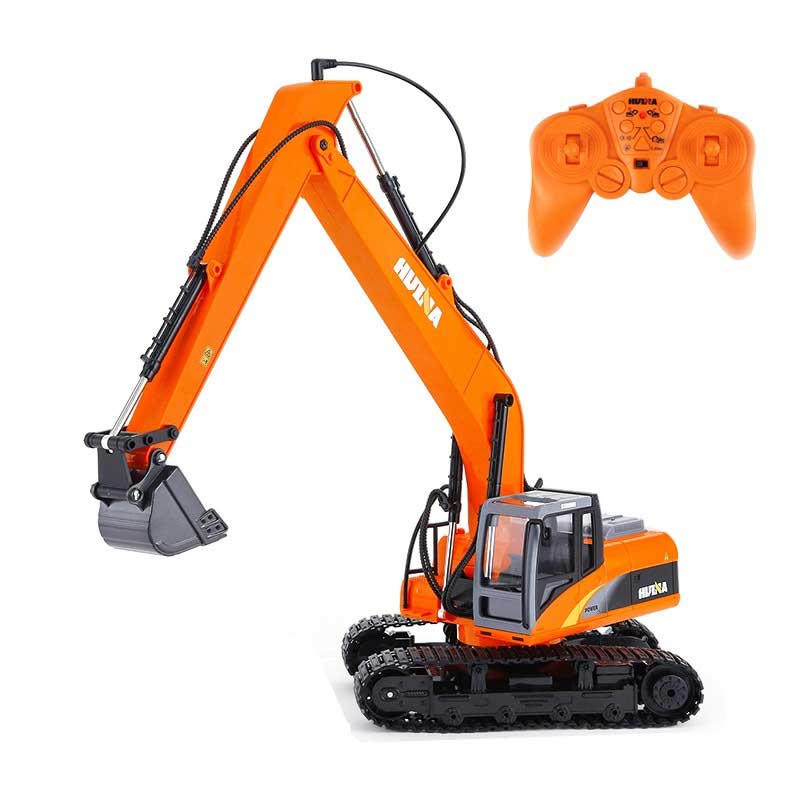Discover the Significance of Excavator in Modern Building And Construction Projects
Excavators are important tools in contemporary building and construction tasks. Their convenience allows them to do a variety of jobs, from excavating and grading to demolition and website preparation. Advanced functions, such as hydraulic attachments and GPS, improve their abilities and effectiveness on work websites. As the industry evolves, the value of excavators expands a lot more. Comprehending their function can expose insights right into the future of construction methods. What exists in advance for these devices?
The Flexibility of Excavators in Various Projects
Although excavators are often related to large-scale building tasks, their flexibility enables them to be used in a variety of applications, from domestic landscape design to utility maintenance. In metropolitan settings, excavators can navigate tight spaces to dig foundations for homes or set up water drainage systems. Their capability to do fragile jobs makes them excellent for landscape design tasks, where they can excavate for ponds or plant trees. In enhancement, excavators play a vital role in energy upkeep, efficiently digging trenches for pipes or wires without interfering with surrounding areas. In farming applications, they help in land cleaning and soil prep work. Their adaptability allows them to be geared up with numerous accessories, boosting their performance across various jobs. This multifaceted nature of excavators not only streamlines numerous building and construction processes yet likewise demonstrates their important function in modern-day framework advancement and maintenance.
Key Attributes and Kinds Of Excavators
The conversation on key functions and sorts of excavators highlights the essential qualities that make these devices invaluable in building and construction. Various excavator kinds, each made for certain jobs, show their flexibility and effectiveness across different applications. rc excavator. Recognizing these classifications and features is vital for enhancing their usage in modern-day building and construction tasks
Excavator Enters Review
Excavators play a pivotal duty in modern-day building, offering flexibility and performance across different jobs. These heavy machinery units can be found in numerous kinds, each customized for particular applications. One of the most typical types include spider excavators, understood for their stability on uneven terrain, and rolled excavators, which provide better wheelchair on smooth surface areas. Small excavators are favored for small-scale projects and tight spaces, while long-reach excavators are made for deep excavating. Furthermore, there are specialized excavators, such as hydraulic excavators, which improve power and precision. Each type includes distinct abilities, making them essential for jobs varying from excavating and grading to demolition and material handling. Recognizing these variants allows building specialists to choose the right excavator for their job requires.
Secret Features Explained
Recognizing the vital attributes of excavators enhances their effective application in building jobs. Excavators are defined by their powerful hydraulic systems, which give the needed pressure for digging, training, and relocating products. Their verbalized arms permit a wide variety of activity, assisting in exact procedures in confined rooms. Furthermore, the variety of add-ons, such as containers, grapples, and augers, expands their convenience to fulfill various task demands. The dimension and weight of excavators also add to their security and maneuverability on various surfaces. Developments in innovation have led to the integration of General practitioner and automation, boosting accuracy and effectiveness in excavation tasks. These features jointly position excavators as important devices in modern building and construction.
Applications in Construction
Changing construction websites, excavators play a pivotal function across different applications, varying from domestic structure projects to massive framework growths. These versatile makers are equipped for tasks such as excavating foundations, trenching for utilities, and website grading. Different sorts of excavators, including crawler, rolled, and mini excavators, provide particular advantages tailored to the job needs. Crawler excavators master harsh surfaces, while rolled excavators provide flexibility on smooth surface areas. Miniature excavators are ideal for restricted rooms, making them preferred in urban setups. The effectiveness and power of excavators considerably quicken construction procedures, making certain prompt task conclusion. Their flexibility even more enhances their value, allowing building and construction groups to take on a diverse range of difficulties effectively.
Enhancing Effectiveness and Efficiency on Job Sites
Optimizing performance and efficiency on task sites is a crucial purpose in contemporary building and construction. Excavators play a pivotal role in attaining this goal by simplifying numerous tasks. Their capability to carry out numerous functions-- such as excavating, grading, and lifting-- reduces the requirement for additional tools, consequently conserving time and resources.Moreover, excavators boost process by permitting for faster conclusion of jobs. With innovative attributes like hydraulic accessories and GPS modern technology, they can implement exact procedures that minimize mistakes and rework. This accuracy not only boosts the quality of work however likewise maximizes product usage, adding to set you back savings.The flexibility of excavators permits them to adapt to various site problems, making sure that projects proceed efficiently no matter of obstacles. By integrating excavators right into building and construction processes, groups can considerably boost their general productivity, bring about timely project conclusion and boosted earnings.
Safety And Security Benefits of Utilizing Excavators
Excavators significantly boost safety on building sites through enhanced driver exposure and minimized hand-operated labor risks. By supplying drivers with a clear view of their environments, excavators aid to prevent crashes and injuries. In addition, the machinery lessens the demand for workers to take part in dangerous hand-operated jobs, further promoting a much safer workplace.
Enhanced Operator Visibility
Although building and construction websites can be disorderly and full of possible threats, improved operator exposure plays an important duty in guaranteeing safety when using excavators. Modern excavators are made with huge, unblocked windows and strategically placed mirrors, permitting drivers to preserve a clear view of their environments (rc excavator). This enhanced visibility is crucial for finding pedestrians, various other machinery, and various barriers, considerably lowering the threat of mishaps. Additionally, several excavators integrate innovative innovation, such as sensing units and cams, to supply operators with added viewpoints, even more enhancing recognition. The ability to see even more clearly not just help in reliable operation but also cultivates a much safer work environment, making it simpler for operators to navigate complicated construction websites without jeopardizing safety and security standards
Minimized Manual Labor Threats
When manual work is reduced with making use of excavators, numerous security advantages arise, markedly enhancing the health of construction workers. Excavators minimize the physical strain connected with hefty dig this training and recurring jobs, efficiently reducing the danger of musculoskeletal injuries. By automating procedures such as excavating, grading, and relocating materials, they enable employees to keep a safer distance from possible hazards. Furthermore, excavators are outfitted with innovative safety features, such as rollover security systems and improved operator ergonomics, which further guard workers on website. The outcome is a considerable decrease in work environment crashes and injuries, bring about increased productivity and spirits among building groups. Ultimately, the fostering of excavators contributes to a safer and much more effective building and construction environment.
Excavators in Earthmoving and Site Prep Work
In modern-day building, a considerable section of earthmoving and site preparation jobs counts on the performance and flexibility of excavators. These equipments are created to manage different soil types and terrain, making them essential for grading, digging, and trenching activities. Their hydraulic arms can be outfitted with different attachments, such as augers and pails, permitting operators to tailor their strategy based on details job requirements.Excavators excel at moving huge volumes of planet promptly and efficiently, which accelerates the general building and construction timeline. They can browse tight areas and testing sites where traditional equipment may have a hard time, enhancing productivity. Additionally, the precision of excavators assurances that site preparation sticks to rigorous requirements, reducing the company website threat of errors that might bring about costly rework.
The Function of Excavators in Demolition Tasks
Excavators play a vital function in demolition jobs, as they possess the power and dexterity needed to take apart frameworks efficiently. Outfitted with different add-ons such as hydraulic breakers, shears, and grapples, these devices can adjust to different demolition needs, whether for small buildings or big commercial websites. Their flexibility makes it possible for drivers to take on intricate projects while maintaining security and precision.In addition to their demolition capacities, excavators promote debris removal, making sure that job websites remain safe and orderly. By breaking down frameworks into manageable items, they permit streamlined clearing up and recycling of products, lining up with modern sustainability efforts.Moreover, excavators can access limited areas and browse uneven terrain, making them indispensable in city demolition tasks. Overall, their durable design and multifunctionality make excavators a crucial possession in the demolition stage of building, contributing considerably to job timelines and effectiveness.


Future Fads in Excavator Modern Technology and Use
As the construction market progresses, innovations in excavator modern technology are positioned to change their use and effectiveness substantially. One substantial pattern is the integration of automation and artificial intelligence, permitting excavators to operate with marginal human treatment. This shift will certainly enhance precision in jobs such as grading and trenching, decreasing human mistake and increasing productivity.Additionally, the increase of hybrid and electrical excavators is shaping an extra lasting building environment, reducing carbon emissions and gas expenses. Enhanced telematics systems are likewise emerging, allowing real-time tracking of machine efficiency and maintenance requirements, which can bring about better operational performance and longer tools lifespan.Moreover, innovations in accessory modern technology are broadening the versatility of excavators, permitting them to do a more comprehensive series of tasks. The combination of these fads demonstrates a future where excavators are smarter, greener, and more versatile, ultimately reshaping building and construction project characteristics.
Often Asked Concerns
Just How Do Excavators Compare to Various Other Building And Construction Machinery?
Excavators, defined by their convenience and power, master excavating and earthmoving contrasted to various other machinery. Their capacity to carry out various jobs, including training and demolition, makes them vital in read the full info here building and construction jobs, boosting overall performance.

What Is the Average Life Expectancy of an Excavator?
The ordinary lifespan of an excavator commonly ranges from 7,000 to 10,000 operating hours, relying on maintenance, usage conditions, and design. Appropriate treatment can prolong this life expectancy, guaranteeing peak efficiency throughout its functional years.
Exactly How Are Excavators Preserved for Optimum Efficiency?
Excavators need normal upkeep for peak efficiency, consisting of routine examinations, fluid checks, filter substitutes, and timely repair work. Executing a preventative upkeep timetable helps extend their lifespan and guarantees effective operation in various building settings.
What Are the Costs Connected With Purchasing an excavator vs. leasing?
The expenses related to renting out versus purchasing an excavator vary considerably. Leasing offers lower upfront expenses but can gather gradually, while buying calls for a substantial first investment, however gives long-term cost savings and asset ownership benefits.
What Training Is Required to Operate an Excavator?
Running an excavator calls for specialized training, normally including safety and security protocols, device procedure methods, and ecological awareness. Qualification programs typically mandate practical experience, enabling drivers to take care of numerous tasks effectively while ensuring conformity with industry guidelines. The most common kinds include spider excavators, known for their stability on irregular terrain, and wheeled excavators, which provide higher mobility on paved surface areas. Small excavators are preferred for small-scale projects and tight spaces, while long-reach excavators are created for deep excavating. In addition, there are specialized excavators, such as hydraulic excavators, which improve power and accuracy. Different types of excavators, consisting of spider, rolled, and mini excavators, supply details benefits tailored to the job demands. Spider excavators excel in harsh surfaces, while wheeled excavators use movement on smooth surfaces.